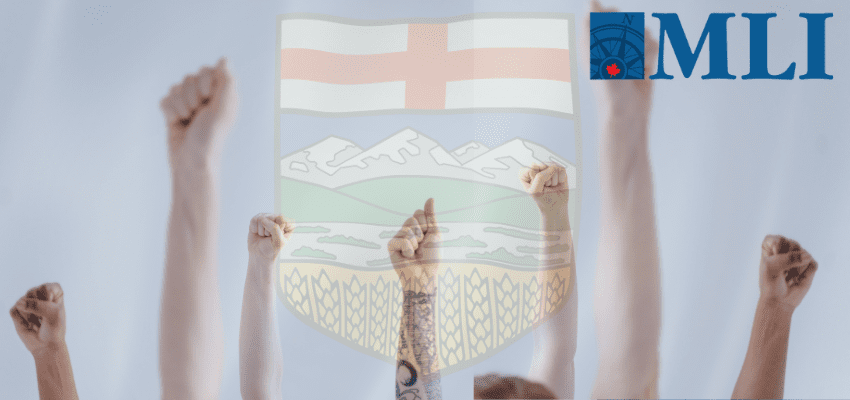This article originally appeared in the National Post.
By Stéphane Sérafin , November 14, 2024
On Oct. 28, the Alberta government revealed its proposed amendments to the Alberta Bill of Rights, which would among other things include the addition of a novel right to keep arms and a novel right to refuse vaccination.
These proposals immediately received negative responses from many legal commentators. Speaking to CBC News, for instance, University of Alberta law professor Eric Adams suggested that the addition of these novel rights is unwise because they lack the political consensus necessary to justify them. Writing on X, University of Calgary Law Professor Lorian Hardcastle charged that “Ultimately, the (Canadian) Charter right to security of the person already includes a right to be free from coercive medical treatment, so this is more about scoring political points than making real changes to individual legal rights.”
There is a significant irony in these types of responses from commentators who are generally sympathetic to the so-called “living tree” approach to constitutional interpretation, through which Canadian courts have frequently given benediction to novel rights to settle contentious policy disputes. Indeed, that doctrine is frequently critiqued for allowing judges to go beyond the provisions of any particular enactment, thereby substituting their own personal judgment for the compromise reached by the political branches.
Just as importantly, these critiques also reveal the extent to which the political right in Canada is increasingly following the political left in framing its preferences in rights-based terms. The most contentious of the proposed amendments to the Alberta Bill of Rights, namely the proposed addition of a right to refuse vaccination, is perhaps best understood as a response to the lukewarm judicial scrutiny of vaccine mandates and similar measures during the COVID-19 pandemic. By making explicit what was at best an implicit guarantee under the existing provisions of the Canadian Charter of Rights and Freedoms and the Alberta Bill of Rights, the Alberta government is undoubtedly hoping to realign judicial attitudes towards its political preferences.
The increasing centrality of rights discourse on the political right, and its takeover of the political left, contrasts with attitudes that were still prevalent on both sides of the political spectrum when the Canadian Charter was enacted in 1982. At the time, both Saskatchewan’s New Democratic premier, Allan Blakeney, and Alberta’s Progressive Conservative premier, Peter Lougheed, expressed concern that the Charter would undermine the more collective commitments that ought to be pursued by governments. Although coming at the problem from different political traditions, both expressed skepticism towards the central role that the Charter contemplated for individual rights in Canadian political life.
It is in large part because of Blakeney and Loguheed’s combined efforts that the final version of the Canadian Charter includes a notwithstanding or Parliamentary supremacy clause — Section 33 — that allows the federal Parliament and provincial legislatures to derogate from a particular court decision on the most significant Charter rights. But that clause has itself come under attack in recent years. And although those attacks have come primarily from the political left, individuals and groups affiliated with the political right have also participated in one way or another in challenging the place of Section 33 within Canada’s constitutional architecture.
In fairness to the government of Alberta, its proposed amendments to the Alberta Bill of Rights at the very least attempt to strike a balance similar to that found in the Canadian Charter. Although the proposals are not free from technical issues, they include a clause permitting courts to recognize reasonable limits to rights, including the new rights to keep arms and to refuse vaccination. More importantly, they also provide for a notwithstanding clause. Formally, the proposed amendments are thus entirely in line with the compromise struck in 1982 between individual rights and the common good of the community, and indeed with the kind of compromise that influenced the drafting of the original version of the Alberta Bill of Rights enacted in 1972.
Nonetheless, the proposed addition of novel rights to the Alberta Bill of Rights only adds to the culture of rights inflation that has characterized Canadian legal practice since 1982. To be sure, these novel rights are being proposed by, and reflect the priorities of, individuals on the right of the political spectrum. But rights inflation is hardly a phenomenon that has historically been exclusive to the left. Even a cursory look at American constitutional history will dispatch that contention, as it includes such infamous decisions as Lochner v. New York, in which the U.S. Supreme Court struck down labour protections on the grounds of a constitutional right to contractual liberty.
Unfortunately, the future of Canadian law and politics suggested by the proposed amendments to the Alberta Bill of Rights is one in which both sides of the political spectrum may be increasingly tempted towards rights inflation. For the moment, this remains largely the purview of the political left in Canada, because it has effective control of the Canadian courts charged with applying both the Canadian Charter and provincial instruments such as the Alberta Bill of Rights.
For now, judicial overreach thus takes the form of decisions requiring the government to permit safe injection sites and striking down the criminal prohibition on soliciting for prostitution, rather than striking down laws favoured by the political left. But that may well change. When it does, we will likely see the political left making many more critiques along the lines of those now being made against Alberta’s proposed amendments.
Stéphane Sérafin is a Senior Fellow at the Macdonald Laurier Institute and an Assistant Professor in the Common Law Section of the Faculty of Law at the University of Ottawa.






